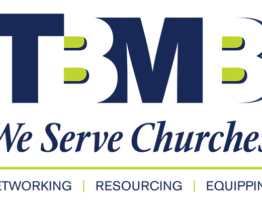 Pastors and other church leaders often are deeply concerned about the weakness of a church. The congregation may be clearly unhealthy, or perhaps it just doesn’t exhibit the vibrant, reproducing life of a healthy church.
Pastors and other church leaders often are deeply concerned about the weakness of a church. The congregation may be clearly unhealthy, or perhaps it just doesn’t exhibit the vibrant, reproducing life of a healthy church.
In both cases, 1 Thessalonians 5:11-23 shows us five proven means for strengthening a church.
1. Care for one another. “Therefore encourage one another and build each other up as you are already doing.” (v.11)
Paul addressed two very specific ways to care:
(a) Care by encouraging one another. Hurting and dying churches need encouragement. They need folks who will come along side and help. I’ll never forget the 1992 Olympics in Barcelona, Spain. During the 400-meter race, a runner named Derek Redmund tore his right hamstring. He didn’t want to quit and began hopping along toward the finish line on one leg. Suddenly, a man jumped over the wall separating the stands and ran onto the track. It was Derek’s father, Jim, who came alongside his son and helped him across the finish line. We need to care enough to encourage.
(b) Care by building each other up. Unhealthy churches are made sick by discouragers, always telling what can’t be done or shouldn’t be done. Like Nehemiah’s discouragers, there are always those who will criticize from the sidelines. A healthy church is marked by those who care for one another more than criticize one another. Encourage one another. Build up one another.
2. Respect leadership. “Now we ask you, brothers, to give recognition to those who labor among you and lead you in the Lord and admonish you, and to regard them very highly in love because of their work. Be at peace among yourselves.” (vv.12-13)
A healthy church has respect for leadership based upon a biblical understanding of church leadership. The Bible uses three words to describe church leadership: Shepherd – This is the labor of the pastor, one who tends the flock, leads the flock and feeds the flock. Overseer – one who watches over the flock. Elder – the leadership of spiritual maturity. We are to respect them because of the tasks God has given them. We respect them because we reverence the God who called them out and sent them to us. A strong church respects godly, biblical leadership.
3. Help one another grow. “And we exhort you, brothers: warn those who are irresponsible, comfort the discouraged, help the weak, be patient with everyone. See to it that no one repays evil for evil to anyone, but always pursue what is good for one another and for all.” (vv.14-15)
These verses exhort us to take proactive steps in helping troublesome or weak Christians behave properly. We must uphold each other. We are far too quick to judge and condemn the weak. We need a sign over our church door: “The weak are welcome here.” Little children get out of line, are fearful and weak. This is the believer’s “buddy system.” Healthy churches are marked by helping one another grow toward maturity. This is going the extra mile to restore and reconcile.
4. Strive for consistency. “Rejoice always! Pray constantly. Give thanks in everything, for this is God’s will for you in Christ Jesus.” (vv.16-18)
These are the standing orders for the church. They never change. The imperative mood gives great weight to these injunctions. We are to consistently rejoice, consistently pray and consistently give thanks. Strong churches are marked by striving for consistency in their walk.
5. Be led by the Spirit. “Don’t stifle the Spirit.” (v.19)
This is the heartbeat of the church. We can either fan the flame of God or stifle his work. Stifling or quenching the Spirit can be described as rebellion, a refusal to abide in the Spirit, an unwillingness to yield to his influence or neutralizing his work in the church. This is the issue in most church revitalization situations. Rather than stifling the work of the Spirit, churches need to remember the church belong to Christ. We are his bride. May we be led by his Spirit.
Dr. Bob Brown is the Church Revitalization Specialist for the TBC. He served as a pastor in the local church for 30 years before coming to the Convention. You may reach him at bbrown@tnbaptist.org.








